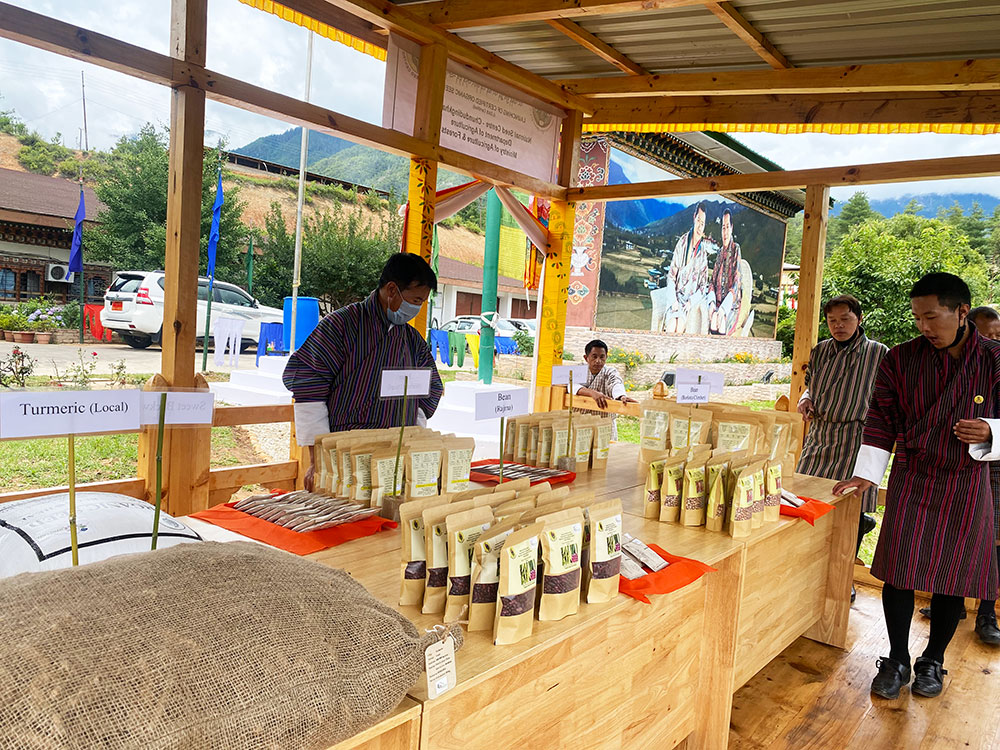Phub Dem | Paro
As the country gears towards achieving 100 percent organic by 2035, National Seed Centre (NSC) in Paro has been taking a proactive approach in procuring and supplying organic seeds since 2019.
The centre has been producing and promoting high-quality seeds, planting materials and other agriculture inputs at affordable prices to improve the livelihoods of farmers.
Considering the requirement of organic seeds with the introduction of the organic flagship programme, the centre launched seven organic seeds within two years. The seeds are quinoa, buckwheat, beans, chilis, ginger, turmeric, and asparagus.
According to the Programme Director of NSC, Sonam, except for organic cauliflower seeds, which are highly prone to pests, the centre is ready with export-oriented and domestic organic seeds.
He said that the centre had identified a group of farmers in Trongsa for cauliflower and its organic seeds are expected to hit the market starting next year. “We are planning to diversify organic vegetable seeds and exploring organic seeds for broccoli.”
The centre started organic seed production during the 2019-2020 financial year with support from the National Organic Flagship Programme.
He said that the centre began an awareness programme for farmers to identify feasible lands to grow organic seeds and then register the farmers as organic seed growers.
He said that a multidisciplinary team comprising officials from Bhutan Agriculture and Food Regulatory Authority and the National Centre for Organic Agriculture visited every gewog to check the feasibility and consult with interested seed growers. “The team also listed support farmers require such as tools, quality seeds, and irrigation pipes.”
In the past, the demand for organic seeds was met by sourcing the seeds from traditional farms that have no history of using chemical fertilisers.
The National Centre for Organic Agriculture has to register, verify and certify every seed grower and their produce.
Sonam said that it was a lengthy procedure and only a certain amount of the seeds were certified as organic seeds, adding that farmers have to certify their produce every year.
There are over 215 organic seed growers registered with the centre.
The seeds were produced on previously uncultivated land and without using any chemical fertilisers.
The centre procured 14.3 metric tonnes (MT) of organic seeds and supplied about 7.7MT across the country.
Without a separate cleaning and processing machine, the centre is facing challenges while packing the produce. Today, the centre has to clean the machine that is used to wash and dry regular seeds and use it to process the organic seeds.
The price of organic seeds is low; currently, they are sold at a promotional rate.
The centre receives supply orders from the dzongkhag agriculture office and private buyers. Besides, the centre also sells the seeds at the CSI market in Thimphu.
According to some officials, the ultimate aim was to hit the export market.
“The organic seeds are stored in small cold storage and they are packed when there is demand. We don’t have separate cold storage to store the packed seeds for now,” an official said.
The NSC is planning to convert some infrastructure on the campus for cleaning, drying, packing and storing organic seeds.
The organic flagship programme worth Nu 1 billion is aimed at a high value, low volume production of 12 organic products. The products are buckwheat, quinoa, ginger, cardamom, mushroom, turmeric, trout, lemongrass oil, asparagus, beans, cauliflower, and chilli.
Edited by Jigme Wangchuk


